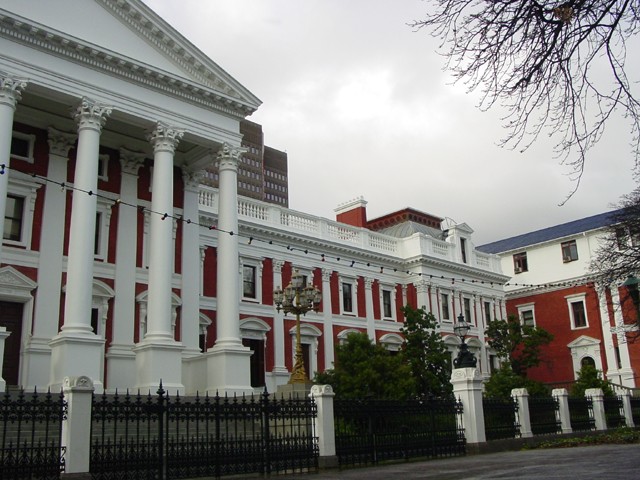New law makes whistle-blowing riskier
Protected Disclosures Amendment Bill criminalises false disclosures
More and more whistleblowers seem to be emerging into the light as new revelations are made daily about state capture, but this is misleading. In fact, research shows that the number of whistleblowers is declining in South Africa.
As it stands, the law does not protect whistleblowers adequately. Also, the culture of impunity makes people reluctant to speak out when they believe nothing will be done to fix the problems they reveal. And the consequences of speaking out can go well beyond the workplace harassment the whistleblower legislation deals with.
The Protected Disclosures Amendment Bill before Parliament was intended to remedy the situation. It creates new protections for whistleblowers, expands the definition of those who are protected, and increases the damages they can claim. This legislation is mostly what you look for in a Bill – based on evidence, research and consultation, it deals with the gaps left when the bill was drafted, 15 years ago.
However - and it’s a big however - the legislation introduces a criminal sanction for false disclosures. This is contrary to the recommendations of the Law Reform Commission, and contrary to advice from experts in the field. The section has been vigorously defended in the Parliamentary committee by the majority party and vigorously attacked by the opposition.
The line of defence on the criminalisation of false whistleblowing has been interesting. Members of the committee talked about whistleblowing as “so many stories creating turmoil.” MP Makgathatso Pilane-Majake made mention of the reputational damage suffered by people who have false reports made against them, and emphasised that defamation was not a sufficient remedy when the person making the allegation was poor. She pointed out that the person defamed gained nothing from suing the poor person.
Professor Christian Msimang appealed to the Committee to come to the rescue of innocent victims of false disclosures. He cited the example of a young man falsely accused of sexual assault who was castrated. Criminal sanctions against those who make false reports of wrongdoing: that’s what we need, agreed the majority.
Despite the risks run by whistleblowers, despite the evidence that people are not speaking out, and despite the huge numbers of unreported rapes, the committee fretted about the people who make false allegations. There are so many of these, in the view of the majority as expressed by Loyiso Mpumlwana, that there is a risk that they will bring down the government.
What is the evidence that we are a country of liars and malicious whistleblowers? We don’t have any evidence that we are better or worse than any other jurisdiction in relation to information peddling, which is a phrase which comes up in this debate. What we do have evidence of is that people are reluctant to speak out about issues because they are afraid they will lose their jobs. The evidence exists in the case of rape that it is only one in nine women who report.
This legislation was intended to protect and defend whistleblowers. It now does so, but at the cost of adding a criminal sanction.
The Law Reform Commission said in 2007 that:
“The Commission confirms its preliminary recommendations that where an employee or a worker knowingly makes a false disclosure such disclosure should not be criminalized. A person who deliberately or recklessly discloses information does not qualify as a whistleblower (except under section 5 of the PDA in its present form) and might also be guilty of criminal defamation, crimen injuria or fraud at common law. There has been no alteration of best practice in this regard, and we do not agree with those that say that this is a way of preventing false claims of wrongdoing.”
Has the situation changed since 2007? Unemployment and inequality remain roughly the same. There remains a significant fear of losing our jobs. Except for a few in the middle class, and the very wealthy, we live from paycheck to paycheck. We are in debt, and not having an income can mean losing a house, or not paying school fees.
There are so many things against us speaking out. The concept of not bringing the organisation into disrepute is strong. It is difficult to break ranks. But being able to speak the truth is part of our right to dignity. We rightly regard dignity as one of the bedrock rights in the constitution. Being able to live your truth is unquestionably part of the right to dignity. Forcing people to live in a way which is against their conscience is a violation of the right to dignity.
As someone who works in an organisation advising whistleblowers, we never say, yes, blow the whistle. We say: it is your right to do so, and we will respect your decision either way. And we don’t judge people who don’t speak out, because we cannot stand in their shoes and make the calculations of risk they must. But we need people to speak out despite the cost, despite the risk of losing friends, and losing jobs, and even losing life. Now, unless this section criminalising false disclosure is scrapped, we will have to advise whistleblowers that there is an additional risk, of criminal sanction, in speaking out, where the disclosure is false and made with ill intent. It would be surprising if this additional risk did not further discourage people from speaking out.
Views expressed are not necessarily those of GroundUp.
Support independent journalism
Donate using Payfast

Don't miss out on the latest news
We respect your privacy, and promise we won't spam you.
Next: Municipal workers demand permanent status after six years
Previous: Putting the horse before the cart
© 2016 GroundUp. 
This article is licensed under a Creative Commons Attribution-NoDerivatives 4.0 International License.
You may republish this article, so long as you credit the authors and GroundUp, and do not change the text. Please include a link back to the original article.

